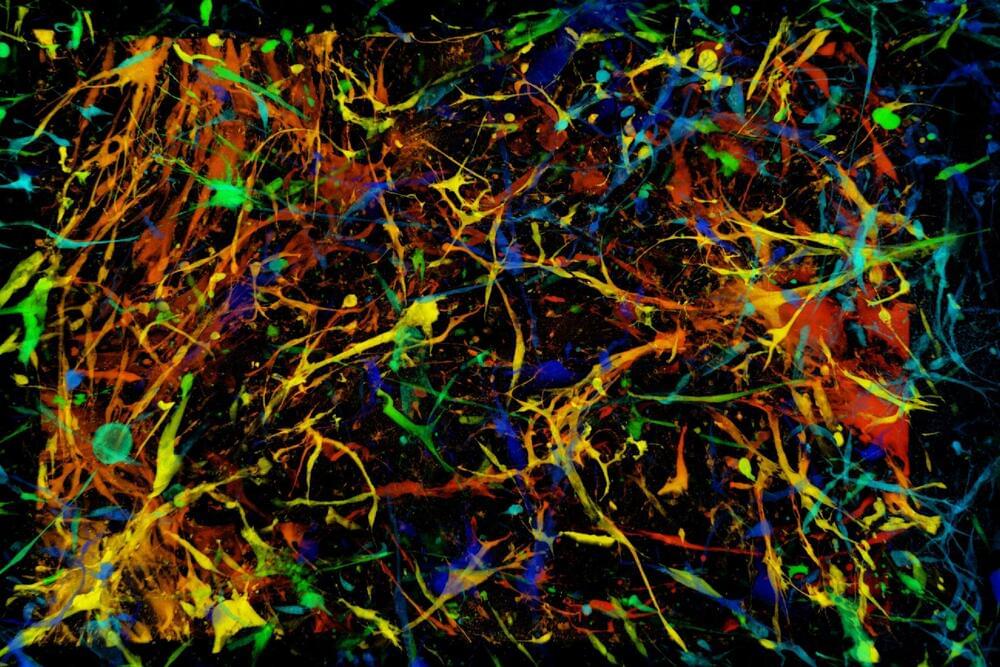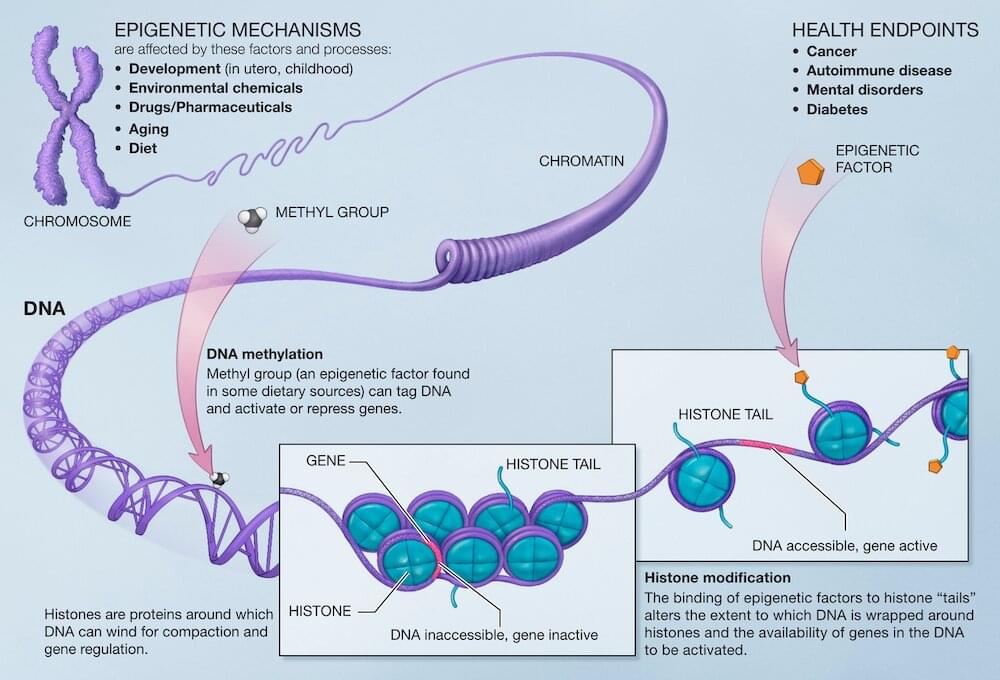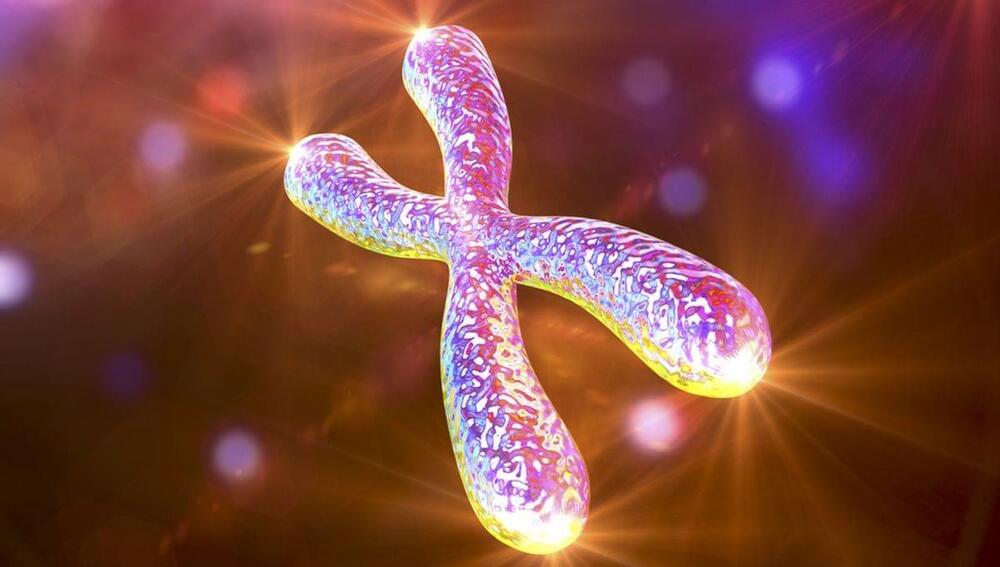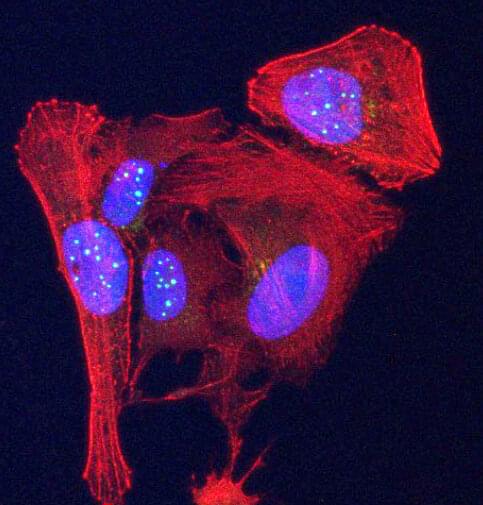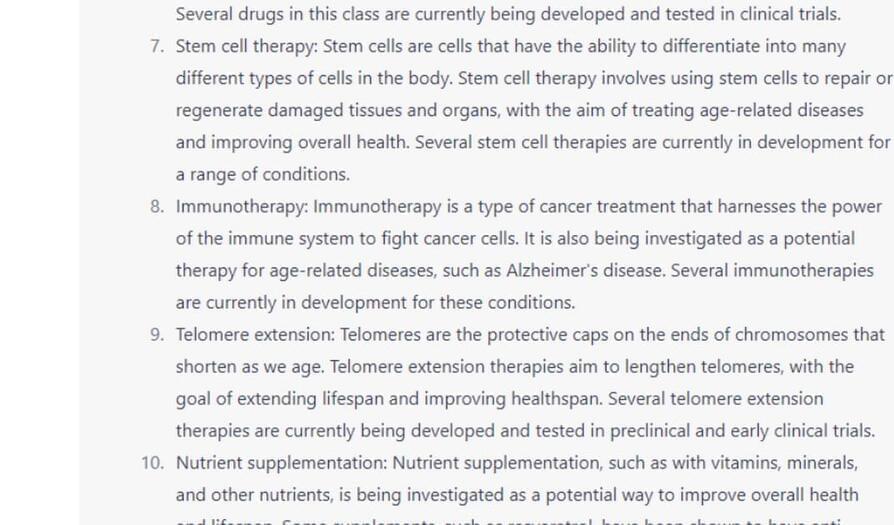Feb 22, 2023
Cellular senescence plays a significant role in cerebral tumors
Posted by Shubham Ghosh Roy in categories: biotech/medical, genetics, life extension, neuroscience
Glioblastomas are the most common malignant tumors of the adult brain. They resist conventional treatment, including surgery, followed by radiation therapy and chemotherapy. Despite this armamentarium, glioblastomas inexorably recur.
In a new study published in Nature Communications, Isabelle Le Roux (CNRS) and her colleagues from the “Genetics and development of brain tumors” team at Paris Brain Institute have shown that the elimination of senescent cells, i.e., cells that have stopped dividing, can modify the tumor ecosystem and slow its progression. These results open up new avenues for treatment.
Glioblastoma, the most common adult brain cancer, affects 2 to 5 in 100,000 individuals. While the incidence of the disease is highest in those between 55 and 85 years old, it is increasing in all age groups. This effect can’t be attributed to improved diagnostic techniques alone, suggesting the influence of environmental factors hitherto unidentified.
